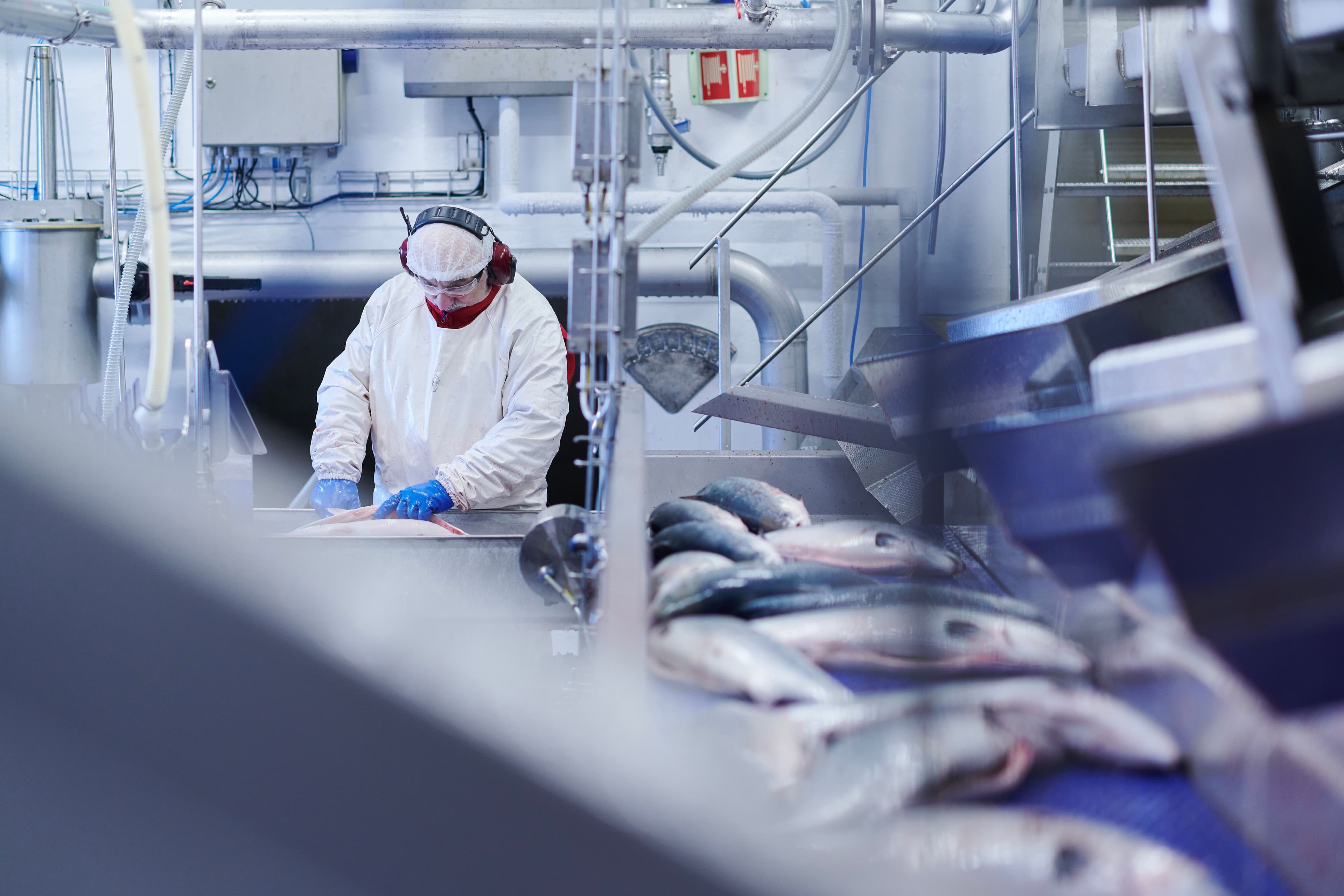
On August 10th, it was announced that there unfortunately has been a leak of chlorine from Grieg Seafood Finnmark's harvesting plant in Northern Norway. The company regrets to say that 96,000 individual fish in four pens outside the plant, sadly died during the incident. A chlorine solution is used to disinfect water after it has been used in the harvesting processes, in accordance with the regulations and approved method for purification of process water.
Akvaplan-niva, an accredited subsidiary of the Norwegian Institute for Water Research (NIVA), was engaged by Grieg Seafood Finnmark to carry out an independent assessment on the impact of the leak on the marine environment in the fjord.
The assessment took place shortly after the incident, and consisted of several sub sections: examination of the seabed at several locations, visual registrations of the seabed with an ROV, a beach zone assessment, CTDO measurements in the water column at various stations in the fjord, collection of water samples from locations in the fjord, and modeling of the dispersions of particles as a proxy for chlorine.
The report concludes that:
- The spill did not impact the Altafjord. It only temporarily impacted a limited part of the Kåfjord
- Recolonization of lost seabed species in the area around the harvesting plant is expected to proceed rapidly
- Observations of living fish of several species indicate that recolonization of the fish stocks happened rapidly
- The seabed species investigated near the plant were for the most part unaffected by the spill
Managing Director of Grieg Seafood Finnmark, Vidar Aamo Nikolaisen, said:
“I am relieved that the environmental consequences are limited and temporary, and that the spill has not impacted the Altafjord. Fortunately, recovery and recolonization around the harvesting plant will proceed quickly, according to the assessment.
Still, this is a very serious incident. It is first and foremost a fish welfare tragedy. During the three years that each salmon is under our care, we constantly work to ensure the best possible fish health and welfare. It is painful to think about what our fish have gone through. Such a leak should not occur. We will get to the bottom of this matter and we will learn from the incident at all levels in the organization.
I also want to emphasize that we understand the concern of people in Alta for the Alta fjord. This is a national salmon fjord, and when we operate in it, we must do so responsibly. We work continuously to ensure co-existence between our farmed salmon and wild salmon in the fjord. We have low sea lice levels, and we have significantly reduced escape incidents in recent years, as is to be expected of a responsible farmer. In this case, however, we have failed, and I am very sorry about that. We will work to rebuild the trust we have lost.”